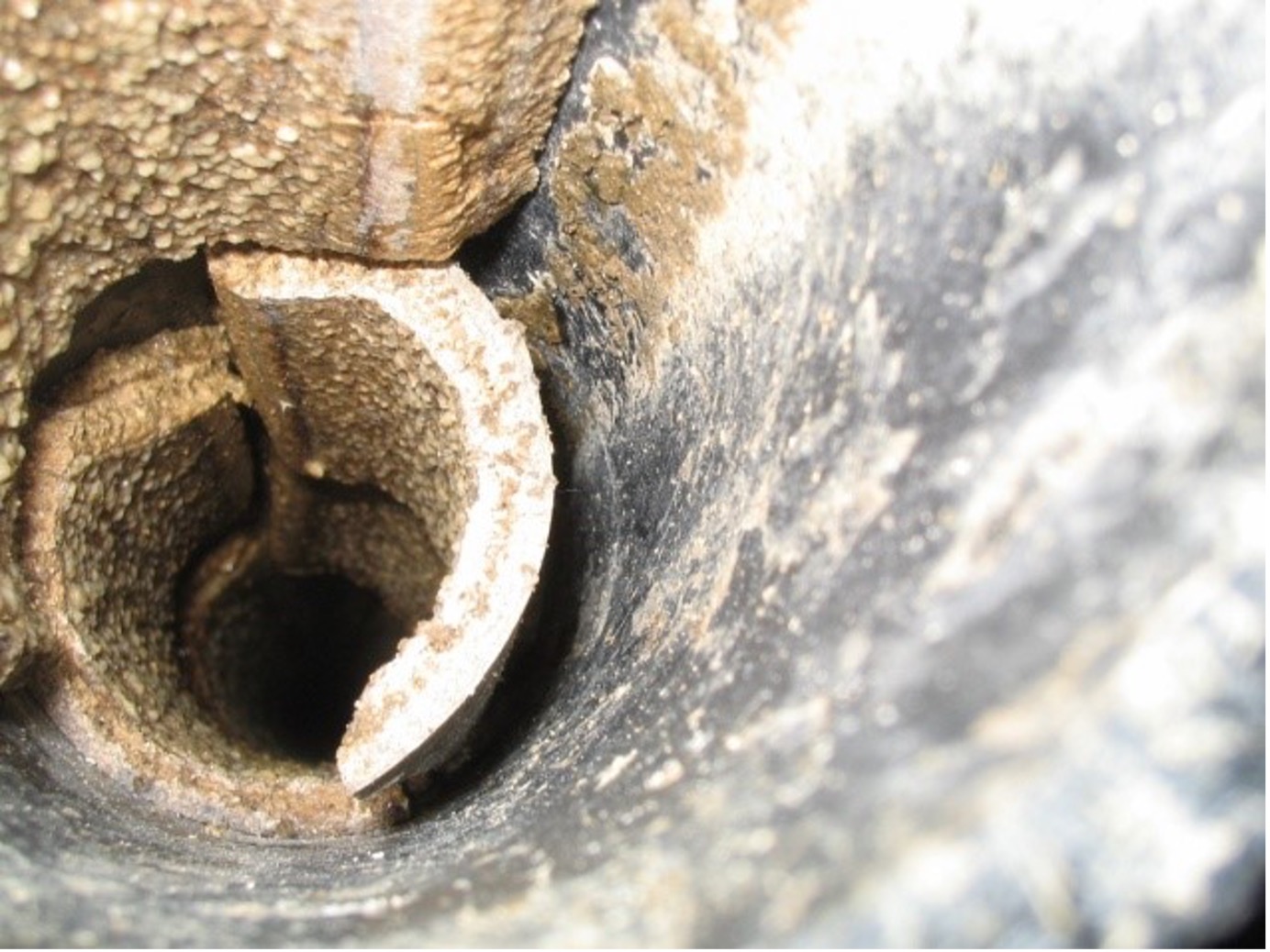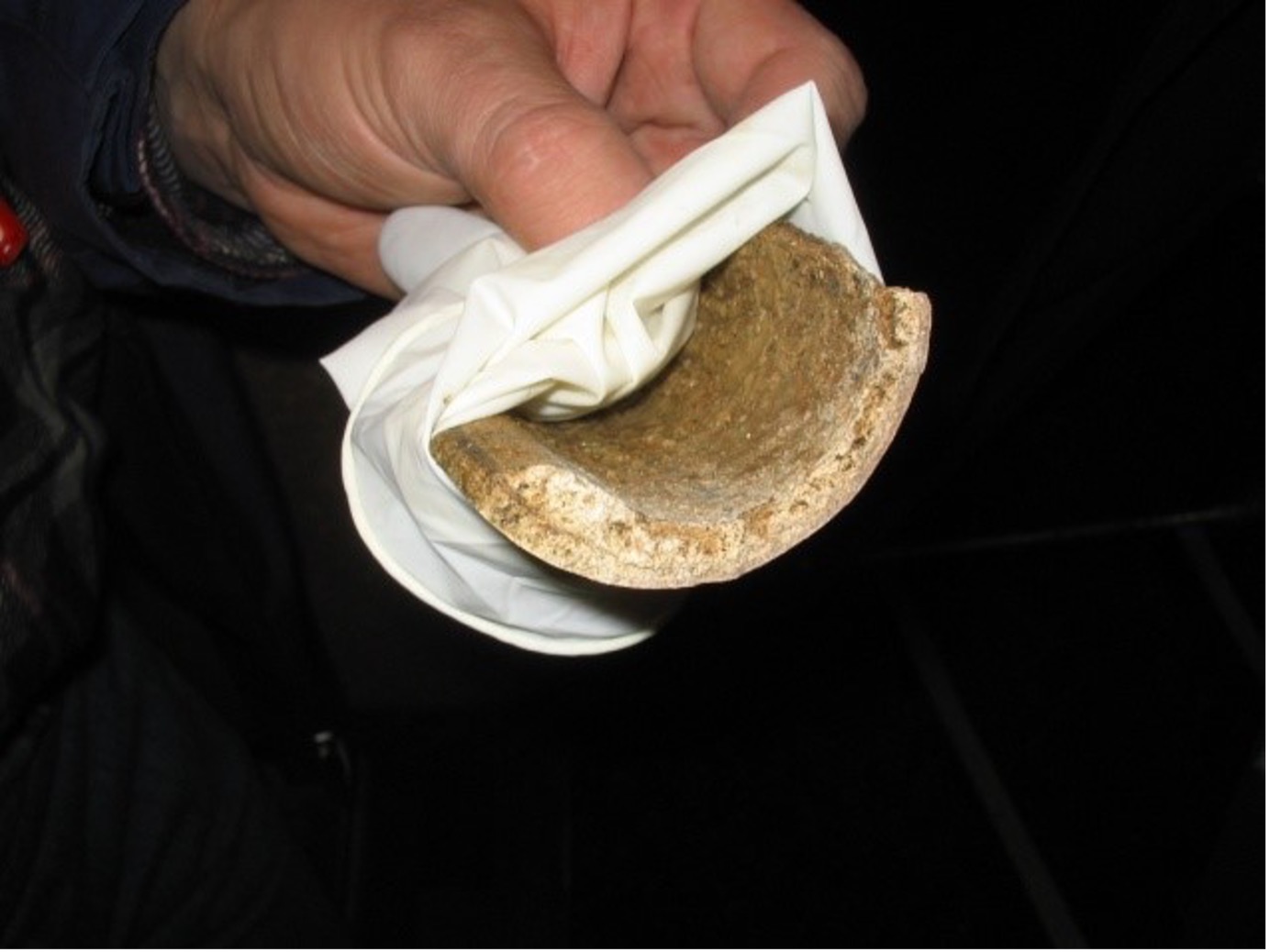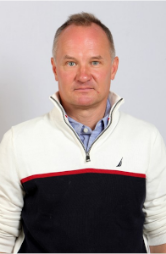Vacuum pipe scale and residue removal
Vacuum pipe scale and residual removal
In all vessels vacuum drainage systems, urine scale build up happens
There can be various reasons for the accumulations in the pipes. In addition to natural waste from passengers and crew, factors such as water hardness, cleaning chemicals, and animal fat from kitchens contribute to deposits on the inner surface of the pipes. Different calcium compositions, such as struvite, urine, and carbonate calcareous, form in the lines of black and gray wastewater. Mineral scale is formed in process equipment, such as heat exchangers, radiators, and drinking water generators. SmartPipe specializes in the precise, efficient, and environmentally friendly treatment of vacuum drainage systems with a comprehensive solution.
Vacuum systems can operate without problems for months. However, at some point, uric scale form, and maintenance procedures are always expensive.
In vacuum systems, as water evaporates, surfaces exposed to higher temperatures form a dense layer of scale. The scale consists of both inorganic (urine scale, phosphates, carbonates) and organic components. Regular treatment is needed to prevent scale formation. The most effective treatment methods are acids (for removing inorganic scale) and microbes (for removing organic matter). Increasingly, vessels favor the automatic dosing of pipe treatments. The described problem is particularly common in long vacuum lines.
In modern ships, vacuum toilets are standard equipment. Their average water consumption is only 1.5 liters per flush. The system has several advantages:
- Small amount of waste and large storage capacity
- Reliability when the ship rocks and tilts
- Installation flexibility and simplicity
- A safe solution that does not release toxic gases indoors
- Few open pipe routes in case of flooding
- The wastewater collection system improves the maintenance performance of the sewage network.


Traditional methods of addressing the scale problem:
A) Increasing flow in pipes
👍 Reduces the formation of urinary stones
👍Decreased vacuum capacity
👎 Increased water consumption
👎Increased water bunkering costs
B) Use of bleaching or disinfectant agents
👍May ease the formation of odors
👎Does not remove scale
👎Use of alkaline cleaning agents can worsen the situation
👎No proven effect on system efficiency
C) Use of strong acids by closing the vacuum system
👍 Removes urinary stones
👎 Risk of valve damage
👎Corrodes and damages pipes
👎Risk of scale particles moving in the pipe
👎Not a sustainable or environmentally friendly solution
D) Use of specific pipe-cleaning chemicals
👍 Proper dosing effectively removes urinary stones and scale
👎 Chemical dosing is imprecise
👎Imprecise dosing increases consumption and costs
👎 Dosing systems vary depending on the supplier
Removal of deposits with SmartPipe solution:
Step 1 – Treatment of toilets with BioTroop Sani
Ship toilets are the starting point for treating the ship's piping. Traditionally, deposit removal is done with powder-based products, which are regularly flushed down the toilet. With SmartPipe's advanced BioTroop Sani, this step can be completely bypassed.
- BioTroop Sani is a dual-action pipeline maintenance agent designed for use as a toilet cleaning agent as well.
- The solution removes scale and prevents its accumulation in the toilet and pipes.
- This 100% biodegradable product breaks down organic waste with the help of lactic acids and effectively eliminates odors.
- Unlike chemical cleaning agents, the substance does not harm the ecosystem when discharged into the sea.
- The use of BioTroop Sani supports the maritime industry's efforts to minimize environmental impact.
- Sani is approved for biological wastewater treatment systems.
- The product is user-friendly and cost-effective Replaces the need for several individual cleaning agents and saving additional work for the ship's cleaning team.
- It solves the problem, maintains cleanliness, and optimizes the ship's piping system.
Step 2 – Treatment of pipeline lines
In addition to the toilet lines, problematic areas of the ship's pipelines are treated with SmartPipe's automatic DPT dosing system and the feeding of environmentally friendly chemicals or bacterial solutions to the problematic areas of the piping system.
- Optimal use of liquid quantities with an automatic dosing device.
- The biological treatment process is programmed with milliliter and minute precision.
- Easy installation for both old and new vessels.
- It is particularly important to start biological treatment for pipes when they are new.
- Suitable for various wastewater systems and treats a wide range of organic waste.
- The most common inorganic deposits in pipes are calcium and magnesium salts, which combine with uric acid.
- To solve the problem, the right product can be chosen on a case-by-case basis:BioTroop BL-20 which maintains the condition of the piping system and prevents issues, or BioTroop RapidX which acutely resolves problems.

